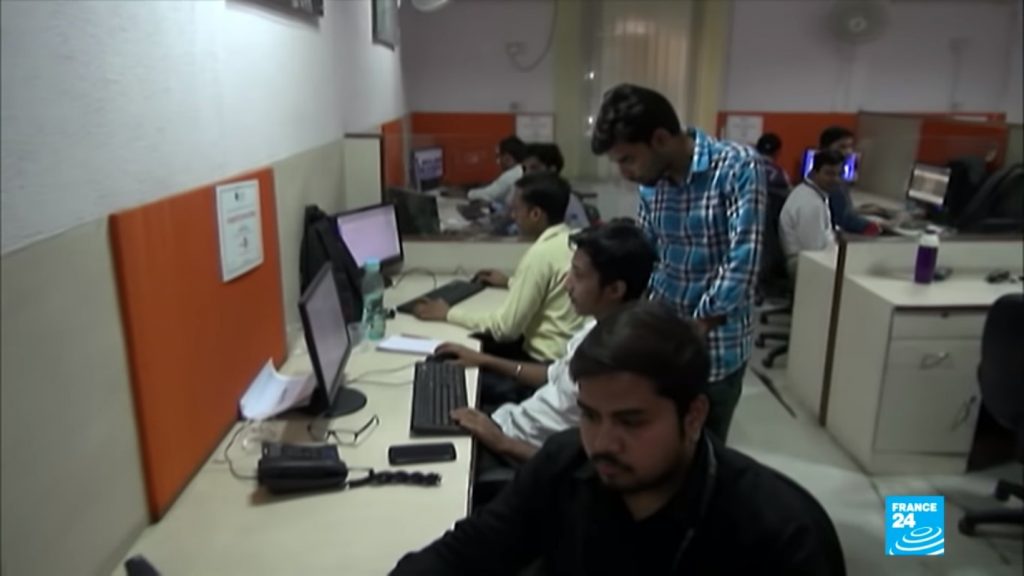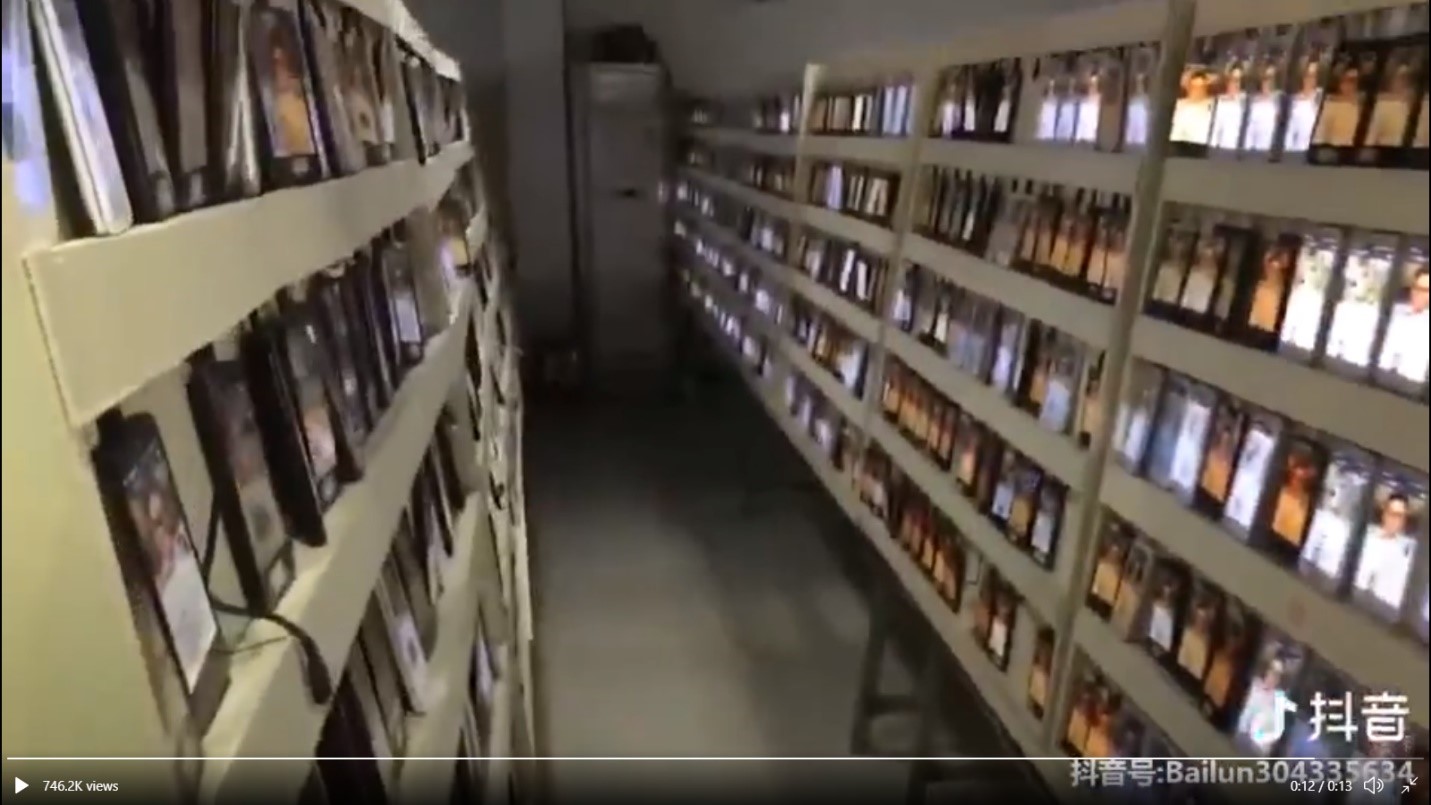Everything you need to know about click farms business and click frauds
What is meant by click farm?
A click farm is a kind of business that is willing to pay its employees on the basis of how much they click on specific elements of a website. This is particularly done to boost the status of a product or a website artificially.
Click farm services exist in those developing countries where the wages are comparatively low by western standards. The employees who are engaged in click farm services make one dollar or a couple of dollars per thousand clicks and this makes a total of about $120 per year.
One of the big click farm websites is Facebook in which the clicks are mostly on the like button of a website. The owners of Facebook pages can buy likes directly from the operators of click farm services (who already operate some Facebook pages). Another way to buy likes is by paying for ads that appear on their pages.
Now, how does this work? In the case of directly purchasing likes, a large number of click farm employees are directed to click the like button for that page. On the other hand, if you go with the ad-purchasing option to promote a specific page, the ads will appear on Facebook pages of other people.
When the click farm workers keep their likes targeted, they can be tracked easily. To avoid this, they engage themselves in clicking on similar links as a normal part of their jobs so that they don’t appear fishy.
We’ve done figuring out what click farm services mean but there are some click frauds that you need to be aware of. Let’s take a look at some click frauds examples.
Click Frauds Examples: List of click farms countries
You may already be familiar with the fact that numerous companies offer fake traffic and engagement on the internet. These likes often appear as ‘genuine traffic’ and you can get a truckload of them. These are primarily designed to get as many likes as you can to increase user engagement on your website.
Despite providing a huge number of likes and user engagement, people are becoming much more aware of click farm services or websites. For example, there is a click farm website known as Russian troll farms. This website is responsible for spreading wrong information and false news all over the internet and it cost the global economy a total of $78 billion per annum.
Another example is that of Silicon Valley that used click farm services to create a false spike in the interest of the users. These services appeared as “pied piper” on Silicon Valley.
However, even if people know that these click frauds exist, there are very few cases that justify this. Therefore, I’ve compiled a list of click farm countries that have been through this kind of expose, a.k.a., police raid. Let’s take a look at such countries.
Click frauds examples #1
Thailand: WeChat click farm services raided (2017)
In 2017, Thai police arrested three Chinese nationals that were operating click farm websites. The police seized about 350,000 SIM cards and myriads of smartphones.
The click farm services provided by these nationals were used to boost engagement on a Chinese messaging app known as WeChat. But the surprising fact here is, these click farm services weren’t shut down because they were illegal, they were taken down because of the immigration status of the men, usage of unregistered SIM cards, and importing of electronic goods without any legal permit.
Click frauds examples #2
Indian click farm: Social media farm in Delhi (2017)

Picture credit: France 24
In the case of India, France24 led an investigation that, in turn, led many journalists to Delhi where they found an Indian click farm website. That man explained all of it by himself on a camera that how he used to spike business ratings on Facebook. This is just a small part of this click farm scamming industry. On a close look, we found out that the total click farm cost came out to be $152 billion per year.
The report contained several images of numerous men operating click farm services and they thoroughly explained how they built up fake profiles so that the user engagement seemed a lot more realistic and true.
Click frauds examples #3
China: A team of clickers runs out from a small office (2017)

Picture credit: https://www.dailymail.co.uk/
While wandering through an unspecified city of China, a Russian man captured a video of several men operating click farm services. According to this video, a large number of cellphones were seen to be connected in a small office, each of them performing similar actions.
Just like other click farm services, these guys were also generating fake reviews and fake user engagement all over the internet.
Click frauds examples #4
Central Asia: Insta clicks (2020)
Till now, we’ve talked about Facebook and how fake likes are created. Now, we’re going to take a look at this click fraud example that involves Instagram. In September 2020, it was revealed that some click farm services are operating in Central Asia, probably Kazakhstan or Armenia. These services were used to create fake profiles and tend to increase user engagement on Instagram.
There are no images present for this because this click farm was operating remotely. However, the click fraud detection services found that a large number of cellphones linked together and they were running from a central location. The click farm employees used a large number of proxy servers, VPNs, etc., to cover their tracks while simultaneously managing hundreds of fake profiles. To shut this network down, click fraud protection service first reported to the parent company of Instagram i.e., Facebook, and then moved further with its investigation.
Click frauds example #6
China: Huge click farm services run by “uniformed” staff (2018)

This click fraud example will leave you shook, my friend. As you can see in the image, hundreds of phones are linked together and they all show the same video or image. This post is originally from TikTok and this happened somewhere in China. From the footage, you can also assume that a very organized operation is going on here because all the click farm employees are wearing uniforms. Sometimes, the click farm employees also worked in an open office area using their tablets. These tablets were networked with the click farm monitors present in the office so that they can multiple each action by a real person.
Click frauds example #7
China: The viral ‘click farm lady’ (2015)

Ladies are working side by side with men in every industry, so why would they leave the click farm industry behind? The mentioned above image shows a lady sitting with a lot of cellphones in front of her. This image first popped up on the internet in 2015 when a Chinese social media site Weibo posted it. According to the report, this lady is being hired to maximize user engagement as well as downloads on the Chinese app store. It is also claimed that it takes about $11,200 to get onto the list of top ten downloads by using click farm services.
Click farm services and the gig economy
We covered the list of click farms countries that were involved in the click frauds and now I’m going to tell you how click farm services can be involved in our gig economy.
As you know click farm websites use remote workers to operate their services. So, they’ll need some people to outsource their work. This is where the freelancers jump in. A lot of outsourcing websites can be used to find the best freelancers in town but these freelancers cost a lot more than regular workers so they will be hired only where there is a dire need of them. However, in 2020, the entire world got hit by the coronavirus pandemic and almost all the people shifted towards work from home jobs. In such circumstances, it is the paid-to-click (PTC) industry that has benefited the most.
Paid-to-click sites are easily accessible and anyone who has internet access can use these sites. Once you get yourself registered, you’re free to click on banners, video ads, captchas, etc. At first, you may only get a few pennies per single click but as you move on, the rates can increase. This can prove a lot beneficial for those people who are living in low-income countries. So, a generous payout like this can be worth all the time invested.
We conducted a little research and found out that these PTC sites remained quite busy in the pandemic years and their remote workers extracted $13 million from their employers. It’s quite a big deal when you can make $10 per day by just clicking on some paid ads and now you can imagine how much these click farm websites or services can make in a year.
Are click farms illegal?
We’ve talked about some click frauds examples and you may be wondering if click farm is illegal?
Generally, no. Click farm services are not illegal. Click farms don’t provide any services that are illegal so they can’t be termed as illegal per se. The work carried out by the click farm websites is quite mundane, to be honest; clicking on some posts on social media, copying and pasting some comments, sharing posts, and following some of the renowned profiles. These activities are quite ordinary and yet click farm services appear to be shady.
As already mentioned, one of the click fraud examples was that of a click farm in Thailand that was raided by Thai police, However, this click farm wasn’t raided and shut down because of its click farm services but because of the illegal usage of cellphones, SIM cards, and other electronic devices by the men operating them. Plus, their immigration status was also a concern for the police officers.
There are no laws that bind these click farm services to be illegal except in China. There is a law named as Chinese anti-unfair competition law (AUCL). This law previously covered the definition of bribery and stealing trade secrets but now it also includes paying a third party to provide ‘unfair advantage’ to various businesses.
Still, all the clicks on paid ads or giving out fake reviews won’t harm the click farms operators but it can lead to exposing potential illegal conduct. But, there is a big chance that action won’t be taken against the click farms operators themselves instead action will be taken against those businesses that use these services.
Hundreds of click farms are operating in those countries that offer minimal employment and labor laws. However, their main legal issues come up on the surface when it comes to wages, working conditions, and rights of the employees. You’ll be surprised to know that the working conditions in these click farms are a lot similar to what you see in the sweatshops but the main difference is that in click farms, you only have to maximize social likes and web traffic and build backlinks instead of making cheap pieces of garments.
According to James, “For most workers in click farms, they see it as a legitimate job… It’s hard work but it is consistent and it pays.”
But when it comes to paying, it is extremely low like that of sweatshop workers. “Yes, most of these workers are on something like $10 a day… People work ten-hour shifts, 24 hours a day.” If not thousands, there are about hundreds of click farms websites or services present out there and the chance of them getting raided or shut down is very rare. Plus, those services that do get shut down are those that are operated by some vile-minded criminals, for example, 3ve botnet operations or Methbot.
Automated Click farm services
Since, I’ve cleared that click farm services aren’t illegal to use, let’s talk about some automated click farm services.
You can get a truckload of people to click on social media posts and links but isn’t it easier to if you can do it automatically? Bots are quite easy to create and use and that is the prime reason behind their success. Since we’re talking about facts, let me add another. Bots account for 60% of the total internet traffic according to some analysts.
Now, talking about click farm services, bots, and botnets (a network of bots connected) play a major role. I spoke to a programmer in Kenya, Adam, and asked him how he creates bots to increase his internet traffic on Facebook and Instagram. He told me that he uses the same bots to increase his follower list by following people automatically. But here’s the fun part, he told me some things about another bot that he worked on.
He said, “My friend connected 50 phones, all running different Google accounts that click on apps and ads.” Is it this simple? “It is a quite advanced form of bot… But he uses it to collect payments on survey apps. But he makes good money from it… He needs to rotate the accounts, but he can use them to click surveys and make money easily… And they pay with PayPal or Google play vouchers.”
If you want to set up your own websites to host some ads, you’ll need a little bit of technical expertise to give it a go. Once you’ve created your websites, you can reroute your bots to perform their specific actions. In the case of organized click farm websites, automated clicks can prove to be a lot fruitful and quite cheap.
Even when you add ‘buy clicks’ in the search engines, about 165,000,000 search engines results will pop up. So, you get plenty of options to choose from to maximize your internet traffic.
Russia has made it even easier for you guys because they have a vending machine that offers 100 followers for about $1.77 and likes and clicks on your social media posts for 50 rubles (almost $0.89c). Get ready to buy some likes and shoes altogether!
Click farm services and click frauds
We know that click farm websites or services are legal and there are very rare cases when they get shut down. But even these services are not safe from ad fraud. So, how can click farm services generate ad fraud? Let’s find it out.
Some online advertisers have contacted James and asked for his click farm services. According to James, “There are some third-party ad providers who can’t fulfill their order quotas for their customers… So, when the promotion is ending, they will use our services to meet their target.”
I couldn’t quite follow what he said and I think you won’t either. So, I asked him to elaborate. He explained, “These aren’t Google ads or Facebook ads, but… Sponsored content from content providers.”
Then, I mentioned a few renowned content promoters to which he replied, “Similar to those, but smaller companies… The content links have the analytics tracking embedded, but this can be manipulated by click farms.”
It may seem like it but let me tell you, James isn’t a fraud.
“We always tell our clients that our traffic is not organic, but many of our competitors don’t… We don’t offer fraudulent services but there are plenty of smaller and mid-level companies that do.”
He let me have a trip of what he offers to his clients and I was surprised to see that many of his services were backed by click farms and bots. He has a very big selection that includes app reviews and downloads, YouTube views, Twitter retweets and followers, and much more. When it comes to YouTube views, it’s about some pennies or a fraction of a penny per view.
Just to be sure, I asked him if these click farms could be a source of potential click fraud.
He said, “The click farm owners aren’t worried about what they click on, so yes certainly the same click farms that we use for legitimate means will also do this.”
But then again, if a person has a little bit of technical expertise, he/she can make a living out of a few phones that can run bots day and night. There will be no purpose in having those click farm services.
The techniques used by click farm services or websites
The world is advancing at an alarming rate and so are the modern Asian click farm services. They understand the algorithms of advertising platforms a lot better than before and they can easily get their ways without being spotted or tracked.
The Kenyan bot programmer tells me, “You have to be careful because if your bot is too active you can get banned. So, you use software to change IP and MAC addresses… If you have multiple accounts, you can switch between them every few hours.”
James elaborates this further, “We have different quality bots which we use for social following packages. Often the cheaper packages have simpler bots which will eventually be spotted by Instagram or Twitter and be banned. But, we also have bots which are used with more advanced algorithms (and) those followers will last longer.”
If you’re paying someone to buy website traffic, you can choose where it must come from but generally, it will come from one of the biggest click farm websites. For example, James sells his services through US traffic or a global one. If you go with the US traffic, you’ll have to pay double the price of the global one. I asked if this traffic comes from a click farm website and he answered, “Yes, but via VPN so the location still shows as the USA.”
The growth of click farm services and demand for clicks
Despite the onset of click frauds, click farm services are growing and so is their demand. James says, “I’ve been working in this industry for about 7 years and in that time it has grown so much. We used to be one of the only companies offering this service, now it’s saturated.”
Indeed, you can now find a large number of things to click on to boost up your business. We only had Facebook, Instagram, and Twitter before but now we also have Snapchat, Telegram, Reddit, TikTok, Quora, Twitch, and several others.
When a person sees the engagement of the users on a website, it builds up a relationship of trust. So, for a small business, even a thousand followers are more than enough. Similarly, reviews and likes hold the same importance and that is why click farms services are booming.
However, with the increase in the usage of click farm services, we also see an increase in click frauds. Both of these go hand-in-hand and if you want to successfully use these click farms, you must do click fraud monitoring regularly.
Many companies want to stay ahead of the game and so they’d do anything to deplete their competitor’s ad revenue and that includes click frauds.
Was this article helpful?
Support us to keep up the good work and to provide you even better content. Your donations will be used to help students get access to quality content for free and pay our contributors’ salaries, who work hard to create this website content! Thank you for all your support!
Reaction to comment: Cancel reply